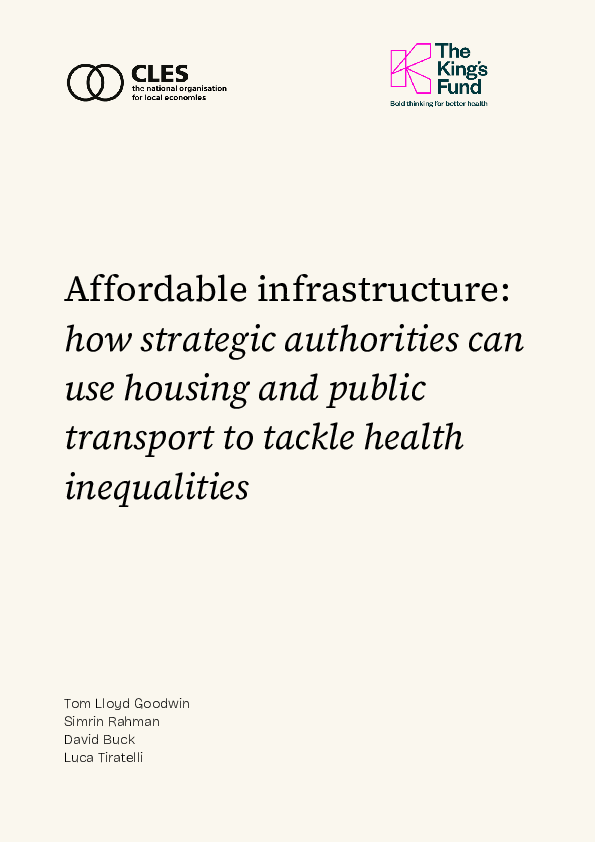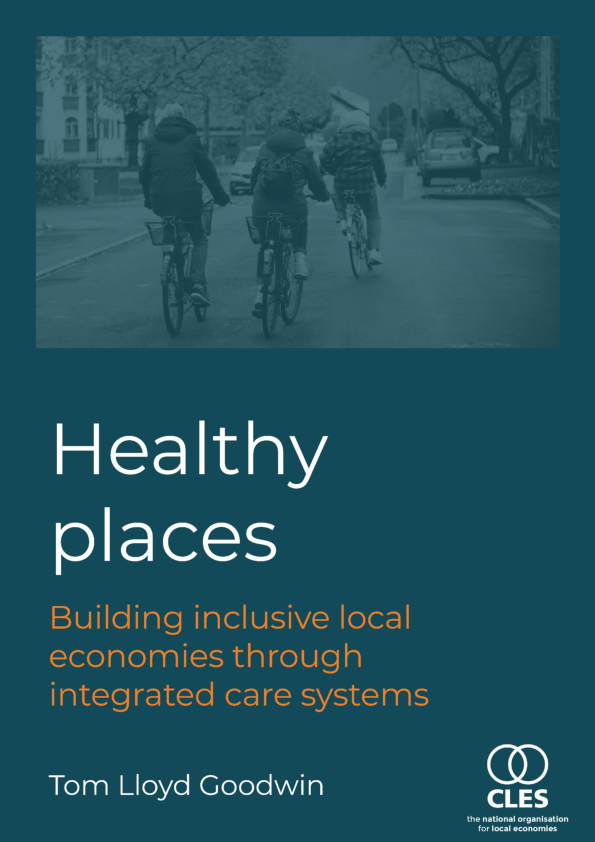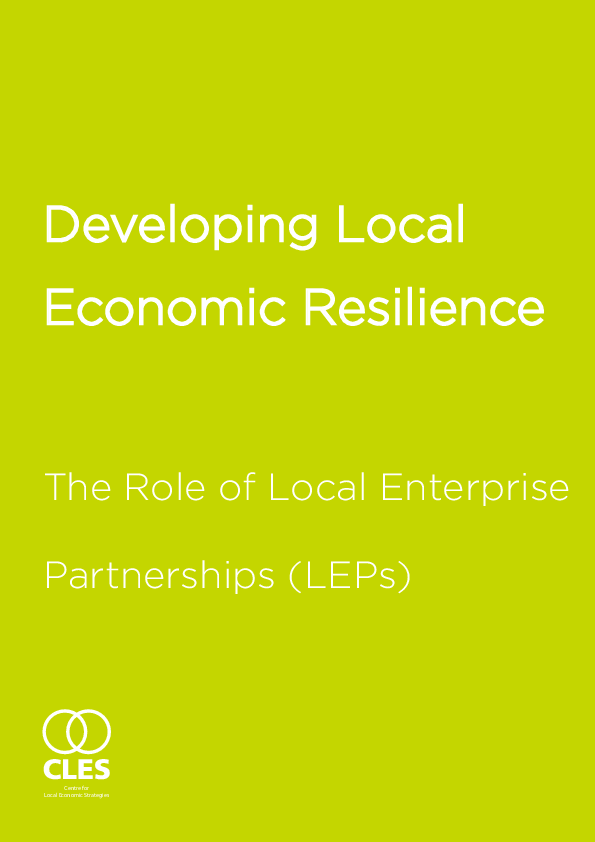Health
Essay: Affordable infrastructure
Getting healthier and wealthier
This article originally appeared in the Municipal Journal, where our Chief Executive, Sarah Longlands, writes a regular viewpoint column.
I had the opportunity to spend time in Birmingham recently as part of the Centre for Local Economic Strategies’ (CLES) work with the Birmingham Anchor Network. Post-pandemic, the Integrated Care System (ICS) in the city has completely revitalised its recruitment approach – tearing up its 17-page application form in the process.
This new approach to recruitment puts the onus on the organisation rather than individuals, and has enabled people – particularly those with transferable skills but a lack of opportunities in the beleaguered hospitality industry – to come and work in health and social care.
Health institutions as “anchors”: unlocking the potential within the NHS
This article originally appeared in the Health Service Journal.
The NHS is not just a service that provides healthcare free at the point of need. It is a social contract with the British people to deliver well-being.
Across its wide range of services, the NHS’s mission extends beyond making us better when we are ill, it is also about making sure we do not fall ill in the first place – playing a key part in addressing the wider social, economic and environmental determinants of health.
How can health care organisations maximise their resources to improve population health?
The Five Year Forward View and evolution towards integrated care systems have placed greater expectations on the NHS to work across a geographical area and maximise its resources to improve the health of a local population. And while this focus on place-based systems of care has spurred developments in the way services are designed and delivered to help prevent ill health and promote wellbeing, limited attention has been given to how the NHS can influence the economic conditions that help create health in the first place.
The impact the NHS has on people’s health extends well beyond its role as a provider of treatment and care. As large employers, purchasers, and capital asset holders, health care organisations are well positioned to use their spending power and resources to address the adverse social, economic and environmental factors that widen inequalities and contribute to poor health.
Public Policy for the benefit of all
As a passionate advocate of progressive social justice, I’ve looked at CLES many times over the years and thought that it would be a great place to work. Joining this inspiring team of individuals, at this point in my career, feels like the perfect move.
Working for CLES offers me the chance to bring together the knowledge and skills I’ve developed over the last 9 years across academia, local government, health and the voluntary and community sector, to help reshape public services and local economies for the benefit of all.
In my first week at CLES, I’ve been looking at the fantastic work that so many local organisations are doing…
The notion that public policy should benefit everybody is well rooted in both my own and CLES’s philosophy, but the challenge of translating this core belief into everyday action, for everyone’s benefit, remains pervasive for policy-makers at all levels.
Public health cannot be separated from economic development
Ill health is not just a social problem, says the chief executive of the Centre for Local Economic Strategies. For the past four months an independent inquiry has been sifting through evidence to examine why health inequalities are growing both within the north of England and between the north and the rest of the country.















